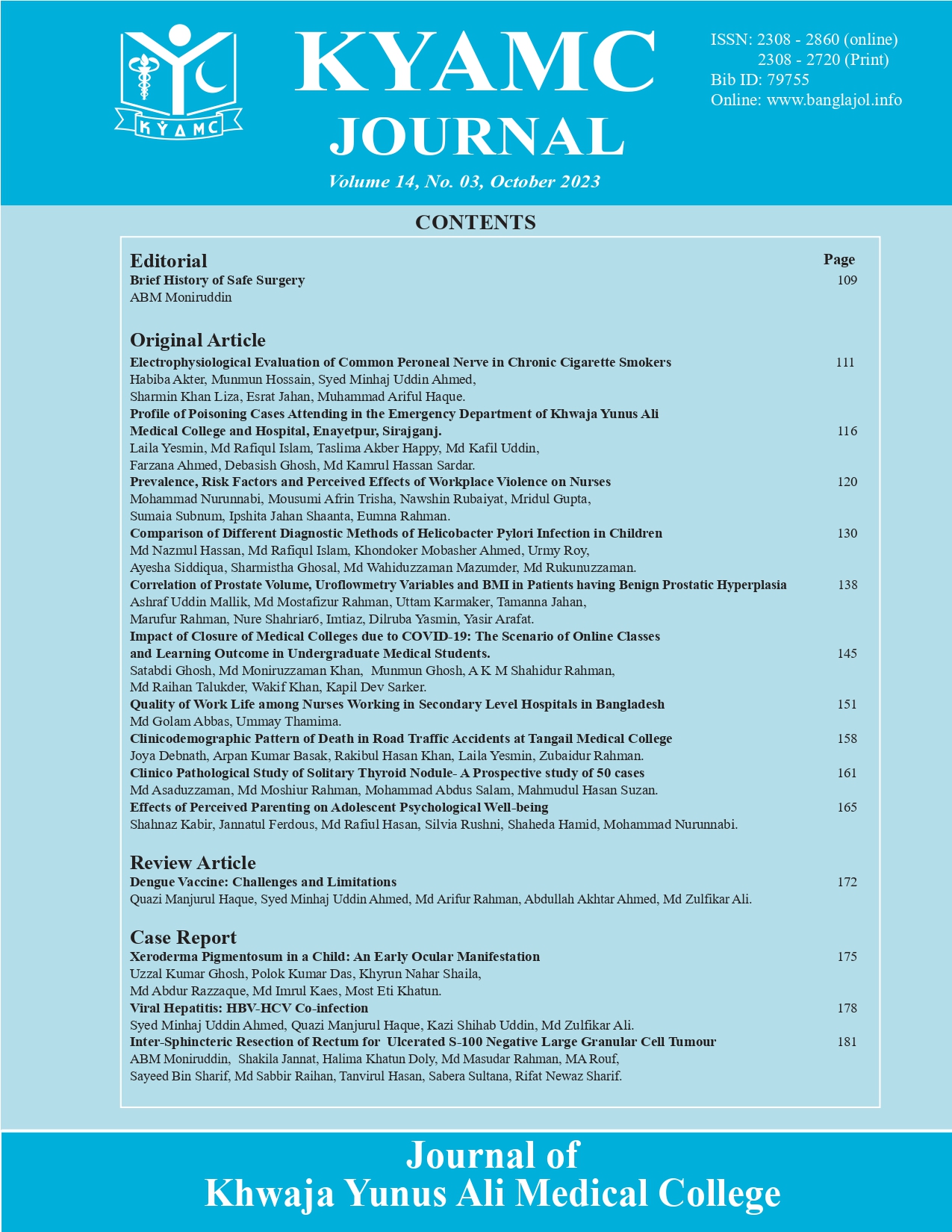Quality of Work Life among Nurses Working in Secondary Level Hospitals in Bangladesh
DOI:
https://doi.org/10.3329/kyamcj.v14i03.67173Keywords:
Quality of work life, WALTON's QWL scale, Nurses, secondary level hospitals, BangladeshAbstract
Background: Nurses play a crucial role in the healthcare delivery system. The phrase "quality of work life" (QWL) describes the range of elements that affect how successfully nurses can balance their personal and professional lives.
Objective: To assess the level of quality of work life among nurses working in secondary-level hospitals in Bangladesh.
Materials and Methods: To assess the quality of the work-life balance, a cross-sectional study including 232 nurses working in secondary-level hospitals was carried out from January to December 2022. The WALTON QWL scale was used to construct the questionnaire.
Results: The QWL score average was 126.0±9.3. About two-thirds of the nurses (71.1%) among them reported moderate QWL. The nurses' QWL was statistically significant when considering their recent night shifts, their capacity to eat at the proper times, their ability to spend time with friends and family, their conflicts with coworkers, and their conflicts with doctors (p˂0.05). The majority of nurses who worked night shifts in the past month (75.1%) reported having moderate QWL, which included being able to take breaks during work hours (66.7%), experiencing sudden changes in the shift schedule (68.2%), not being able to eat at the right time (79.6%), not having many opportunities to spend time with family and friends (81.85), and having conflicts with coworkers (84.1%) and doctors (87.5%).
Conclusion: The study revealed that most of the nurses experienced moderate levels of QWL. The prevalence of QWL among nurses may have affected patient care, satisfaction with care, increased medical errors, and decreased overall hospital job efficiency. Enhancing nurses' QWL will help to raise the standard of nursing care given to patients at all levels and, as a result, increase their productivity.
KYAMC Journal Volume: 14, No: 03, October 2023: 151-157.
Downloads
61
54
Downloads
Published
How to Cite
Issue
Section
License
Copyright (c) 2023 KYAMC Journal

This work is licensed under a Creative Commons Attribution-NonCommercial 4.0 International License.




